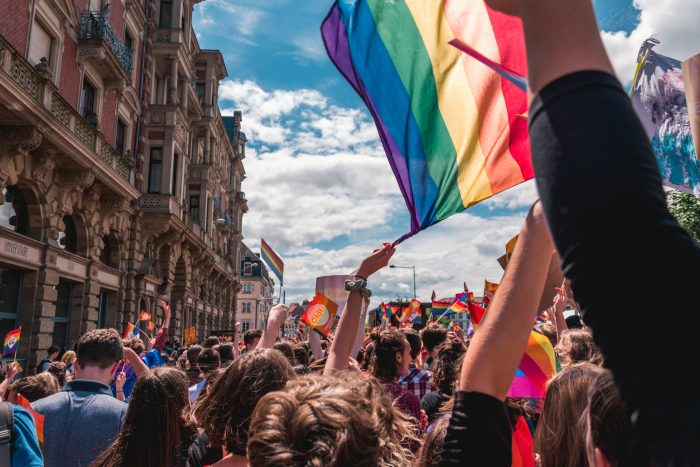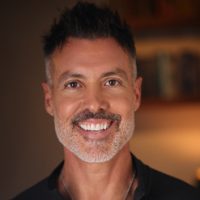{*Did you know you can write on Elephant? Here’s how—big changes: How to Write & Make Money or at least Be of Benefit on Elephant. ~ Waylon}
~
Standing in line at a popular gym in West Hollywood waiting to check in for a workout class, the instructor, hunched over and leaning against the desk, looked at me almost painfully and said, “I’m still recovering from the weekend.”
It was Pride this past weekend in West Hollywood and he proceeded to tell me about how many “overpriced” $20 vodka sodas he drank while celebrating Pride.
A girl nearby laughingly responded, “Well you just have to do it—I mean come on, it’s Pride.”
For about five minutes, before our workout began, people all around me recounted their alcohol-infused Pride weekend festivities.
It made me think about a session I had with a client earlier in the day and how he talked about his experience at Pride feeling alone and not “part of the community” because he doesn’t “drink or party.”
I used to think in order to celebrate anything, I had to drink or get drunk. After working at a popular gay bar in West Hollywood for 11 years, I know firsthand how intrinsically connected celebrations in the LGBTQ community are with drugs and alcohol.
For more than a decade, alcohol-infused Pride weekend festivities were the rule rather than the exception.
That’s no longer true for me, and for the past nine years, I’ve found freedom in sobriety.
What I learned from my years bartending in West Hollywood is that what people do at bars and what they do at church are ultimately the same: the pursuit of a connection with something beyond the realm of this world. It’s just that one source is sustainable, and one isn’t.
In her book Daring Greatly, Brené Brown writes, “Because true belonging only happens when we present our authentic, imperfect selves to the world, our sense of belonging can never be greater than our level of self-acceptance.”
This applies to everyone, but as a gay man who has navigated religious trauma, shame, addiction, and HIV, I often think about the level of self-acceptance among gay men—from where is it cultivated and, more importantly, nourished? It’s one thing to be out of the closet, but another to fully accept and embrace ourselves wholeheartedly and unconditionally for who we are.
In a popular article about gay men and an epidemic of loneliness, the author writes, “I went to West Hollywood because I thought that’s where my people were. But it was really horrifying. It’s made by gay adults, and it’s not welcoming for gay kids. You go from your mom’s house to a gay club where a lot of people are on drugs and it’s like, this is my community? It’s like the f–king jungle.”
Currently, the highest level of risk for HIV belongs to gay men between the ages of 17 and 29. What’s more, gay men continue to report higher levels of drug and alcohol addiction than their heterosexual counterparts. Crystal meth, specifically, is a silent epidemic among gay men throughout communities across the United States.
Over the past few months, a common theme among many of my therapy clients has been related to a reactivation of familial homophobic trauma. Many of my new clients are seeking support to help them heal from unprocessed religious trauma that the surge of anti-LGBTQ legislation in the United States has triggered—which is affecting their mental, emotional, and spiritual well-being.
In 2023, there were over 725 anti-LGBTQ bills introduced in state legislatures across the U.S. Many LGBTQ advocacy and legal organizations are calling it a “Secularism Attack” with more than 75 bills getting passed in over 20 states this year alone. The anti-LGBTQ bills address everything from healthcare and civil rights to free speech and education. Many of the bills, such as the “Don’t Say Gay” law that was passed in Florida, are being copied and expanded among other states.
Craig Thompson, CEO of APLA Health, one of the largest Federally Qualified Health Centers providing LGBTQ health equity services, detailed a disturbing number of anti-LGBTQ laws that have been proposed. A well-known LGBTQ advocate and leader in the community since the 1990s, Thompson said, “What we’re seeing is a coordinated attack that is a product of over 30 years of political action by conservatives to gain supermajorities in state legislatures and dismantle the constitutional rights of LGBTQ people.”
Recently, a newly sober client told me that growing up, there was “no room” for him to be gay at home—it felt like he could never fully breathe. While he’s a 35-year-old adult man, we’re only just beginning to process the shame that he internalized from the adults around him in his childhood about his sexuality. The experience, I told him, is like having a thousand paper cuts and not realizing how painful they feel until you jump in the ocean.
For that reason, increased rates of gay men turn to drugs and alcohol to anesthetize the pain of growing up and not being fully seen. There is a distinct difference between tolerance and true acceptance. I can be openly gay and attend all the Pride festivals I want, but if I don’t accept myself on the inside, my paper cuts still hurt.
Since coming out of the closet nearly 20 years ago, I’ve been privileged to meet people from around the world at various stages of their coming-out process. It’s been a huge reminder of the connectedness of our human condition. It’s also reminded me although the LGBTQ community has made tremendous progress, there is still more for us to do.
I recently read that one of the fundamental keys to success is humility. I think it goes beyond success, and that it’s one of the fundamental keys to life. In fact, it’s through our humility that we can access authentic pride.
After nearly 15 years of anesthetizing my pain with drugs and alcohol and nine years of sobriety, what I’ve come to learn from my own path is that connecting with our spirituality, loving ourselves (from the inside out), and taking full responsibility for our lives and choices is where pride lies at the deepest level.
In honor of Pride month and anyone interested in sobriety.
~
{Please consider Boosting our authors’ articles in their first week to help them win Elephant’s Ecosystem so they can get paid and write more.}


 Share on bsky
Share on bsky





Read 5 comments and reply